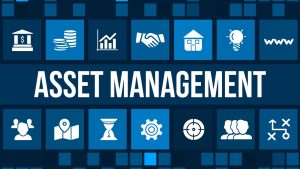Today, incorporating Enterprise Resource Planning (ERP) software has become mandatory for businesses that want to surge ahead of the competition. Without such a digital solution, companies are said to be missing out on features that can help streamline their operations. An ERP acts as a single source of truth for accurate decision-making and can eliminate unnecessary financial expenses and wasted resources through data analytics and automation. Hence, if a company decides to integrate an ERP into its operations, that is one step in the right direction. Finding an ERP most suitable for an organisation’s needs can be challenging. An equally daunting task is to find a vendor that provides such features, after which a company will have to decide to choose between hundreds of vendors competing in the market to find the best. This article offers several tips businesses should consider when determining the most suitable vendor.
Seven Features That Must Be Included in Your Checklist When Finding A Reliable ERP Vendor
Doing the necessary research before investing in an ERP system is essential. While an ERP promises a range of features on paper, the quality and consistency of an ERP will depend on the software vendor. If the vendor is not reputable and its clients are not in or already ahead of the competition, it is hard to assess how successful their ERP solution can be. Here are seven things to tick off your checklist when choosing the right ERP vendor:
Ensure the ERP Solution Is Customisable to Your Needs
An ERP solution that offers a list of features is not in use if it does not cater to the organisation’s needs. Hence, the organisation should take special care to jot down what they expect from an ERP solution and how it can help them grow their business. This is also why it is not enough to rely solely on the positive recommendations that one may provide. The mere fact that one vendor provided an excellent solution for one company does not mean it is a great vendor for everyone. One way to ensure that the vendor is reliable is by considering whether its solution is flexible enough and can be customised according to the company’s requirements.
Does It Compliment Your Existing Business Infrastructure?
Companies can adopt different IT infrastructures. They could, for instance, hold an on-premise or cloud infrastructure. While cloud infrastructure is said to be a more suitable infrastructure for integration, only a small percentage of companies have adopted such a system. Hence, ERP solutions should not exclusively support cloud systems and instead provide the flexibility of adopting their solution regardless of the type of infrastructure the business has. Ideally, a great vendor does not require a business to make extensive changes for an ERP solution to function. An ERP should be able to seamlessly integrate with all devices in the company regardless of the type of infrastructure. Therefore, choose an ERP solution that goes with the existing infrastructure adopted in the company.
Does It Provide Good Customer Service and Training Services?
A business can easily assess the quality of services a vendor provides by the standard of its customer service. This includes a vendor’s attention when discussing how the ERP system should help a company streamline its operations and the time taken to provide a customised ERP solution that addresses them. The attitude of the vendor during the discussion is also essential. No matter how reputed and successful the vendor is in the industry, they should not expect the client to come after. Instead, they should give equal attention to each prospective client and showcase that they are genuinely committed to helping the business solve its problems.
Moreover, although the software should be user-friendly and easy for those with minimal technical knowledge, it does not mean that ERP software will be as easy to handle from the first go. Hence, an additional point to consider when choosing a vendor is whether it offers free training services or a standard rate. This shows that the vendor is committed to helping a business become self-reliant and help it reduce its costs in the long run.
Does It Have Positive Reviews or Come Highly Recommended?
It is common to check customer reviews when doing the necessary research. Consider client testimonials featured on the vendor website and also take the extra step to check on the branding and reputation of the clients the vendor has attracted. What deems the standards of a vendor is not simply their solution and how they help companies scale up in the business world, but also the type of client they have received throughout the years. Hence, if, for instance, the vendor has provided solutions for a reputable business, it is a good indication that leading industrialists trust the vendor’s solution. It is, however, not enough to only look at the positive review. Take the time to go through blogs and other feature articles that have commented on the ERP solutions of the vendor. It is always best to have a complete picture of the prospective vendor rather than only reading through the positive features. If the positives outweigh the vendor’s criticisms, it should not hold a company back from adopting its solutions. Take advantage of the connections made in the industry and evaluate whether they come highly recommended.
Is the Solution Scalable?
It is essential to consider long-term factors when finding the right vendor that offers the ideal ERP solution. One such aspect includes whether the solution complements the business when it grows. If a small company, for instance, adopts an ERP solution, it should consider whether this same ERP solution can be used when subsidiaries are opened in other regions. This does not simply mean that each process of all subsidiaries should be integrated. Instead, the ERP system should be powerful enough to handle the enormous amount of data coming from two or more offices. It should then be able to monitor, process and draw available insights in real-time that are reliable. Simply put, the ERP should function to its fullest potential regardless of how much the company extends its operations.
How Are They Different From Other Vendors?
A company’s research to find the best vendor for its operations will consist of evaluating multiple vendors. In this assessment, make sure to keep track of the specific pros and cons of each vendor. Compare the features it offers and note what makes each of them different. Factors such as whether the vendor provides remote access through its solution may be necessary here. Also pivotal is the level of security the vendor assures. While remote access could not be regarded as a common feature, the level of measures implemented that ensure data protection can differ. Hence, research extensively on how reliable and accurate the vendor’s claims are on the safety of their solutions. The inclusion of encryption points and data security protocols should not be the only thing considered. Instead, when going through other blogs, features and reviews, specifically check on the data protection measures enacted and whether clients have been satisfied with the security that has been met at all levels.
Calculate the Total Cost of Ownership
A good ERP system is expensive, although it is a worthy investment. The price of an ERP solution is not a factor that should be underestimated when deciding which vendor is the best. It should be noted that the investment put into an ERP solution does not end with its purchase price. The maintenance cost incurred in the future and other financial aspects related to the software should be considered as a whole. In other words, a company should assess the feasibility of the total cost of ownership. This also helps to measure the return on investment (ROI) after purchase.
Take Your Time, Be Constructive and Make a Decision
Finding the right vendor is never an easy task. Ample time should be spent researching and finding the right ERP solution provided by the right vendor. Compile a list of things your business needs, find an ERP which caters to those needs and then find a vendor that has built such an ERP system. Be constructive in your approach by removing your dependence or reliance on the recommendation of a trusted person. While reviews are a part of finding the right vendor, take the time to review every other factor on this checklist before finalising your decision.






